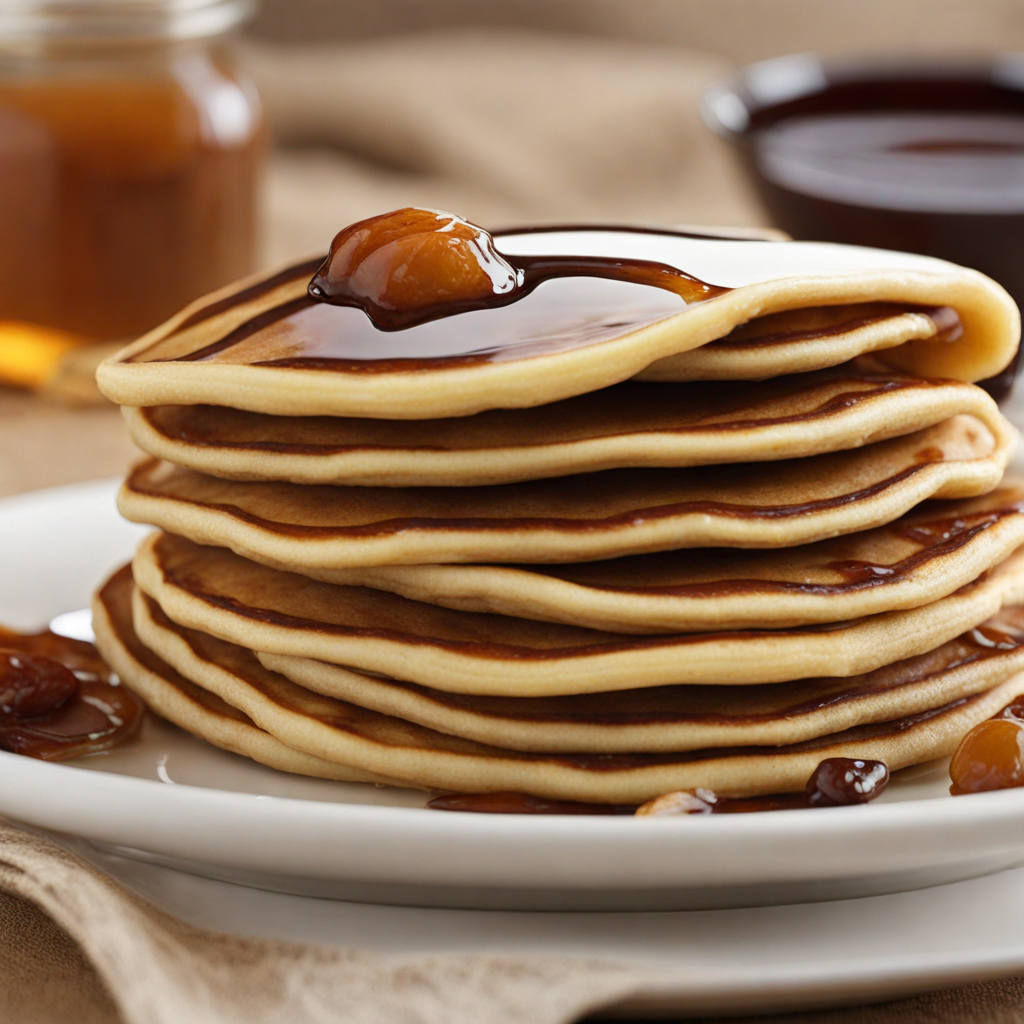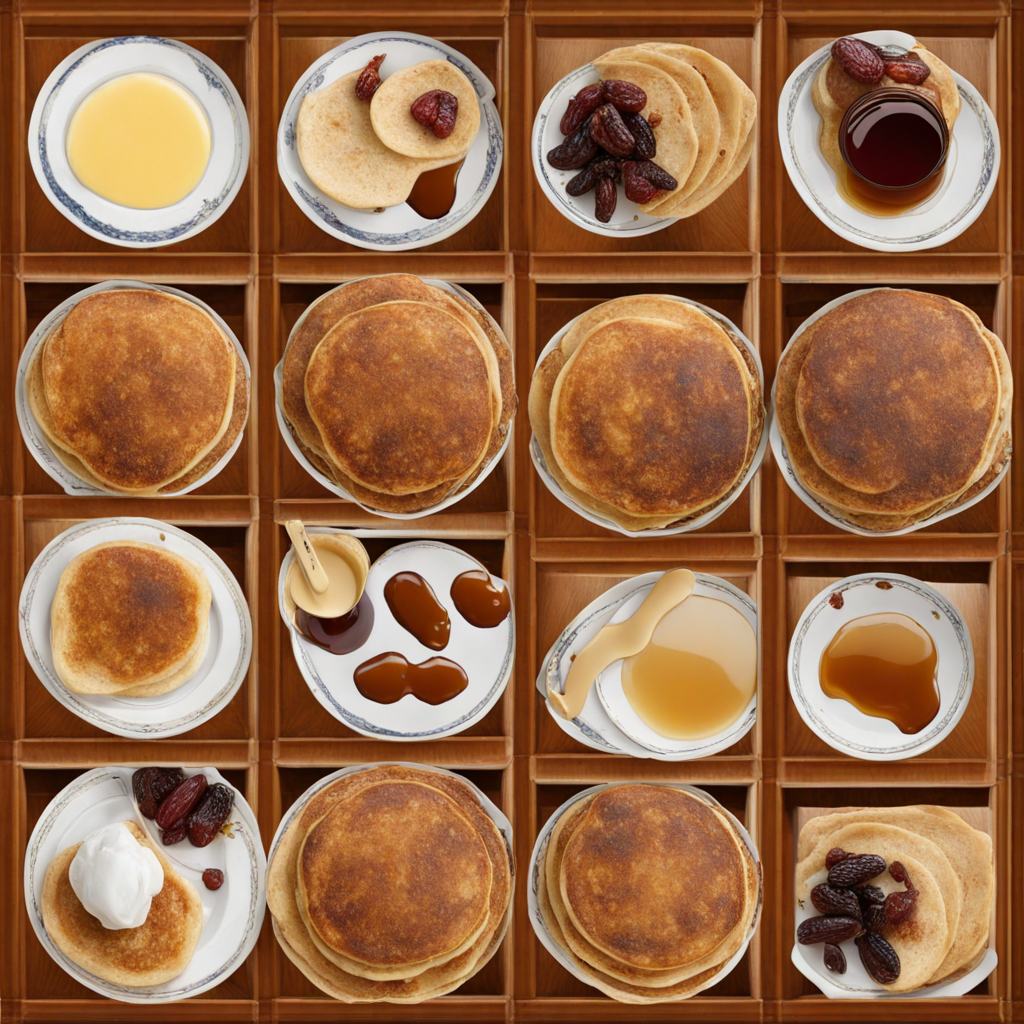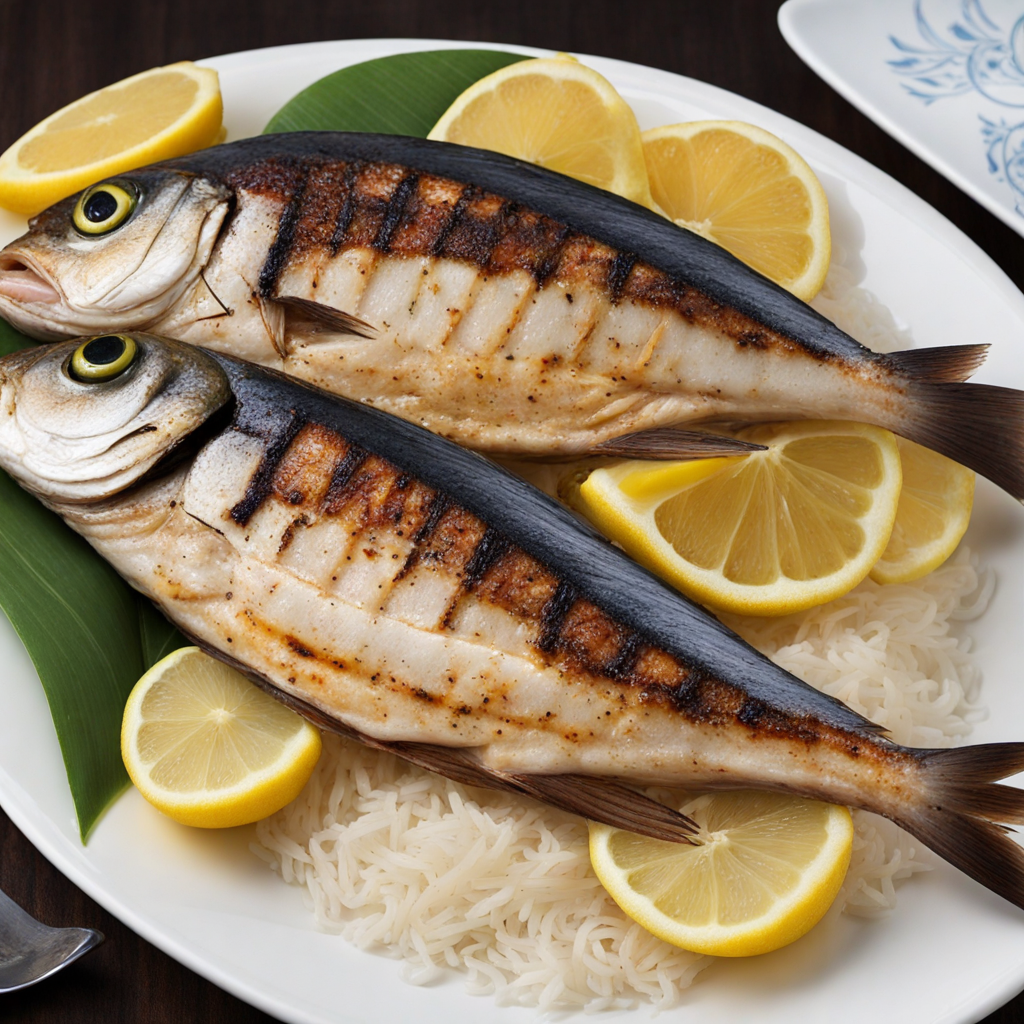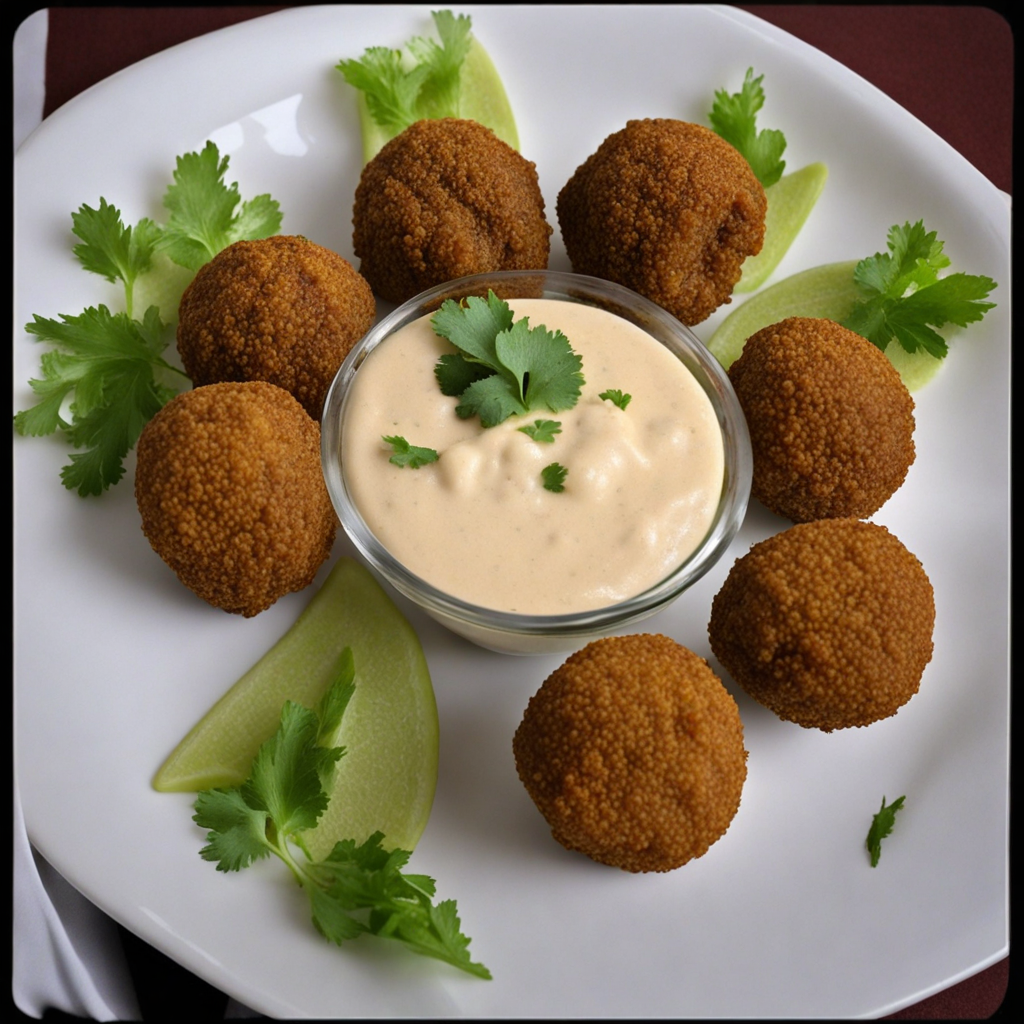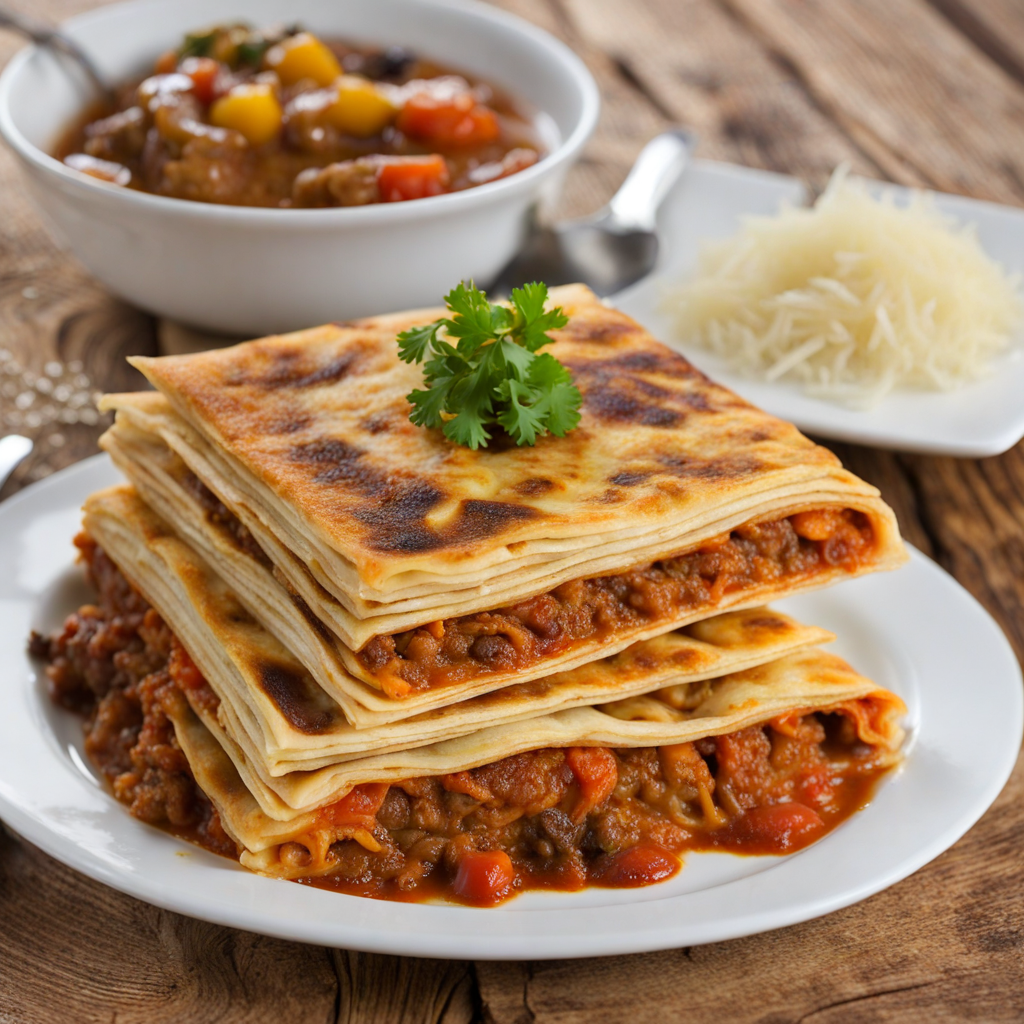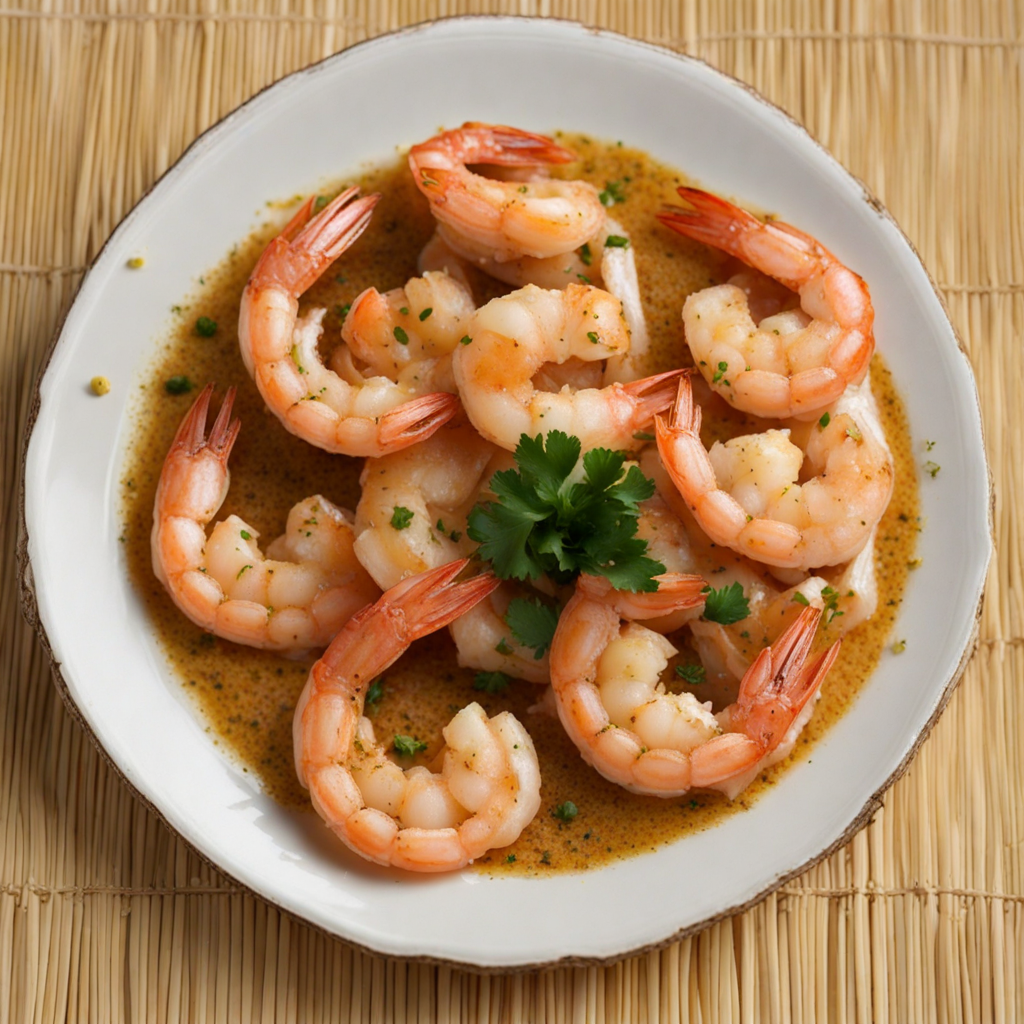Date Pancakes
Date Pancakes are a delightful treat hailing from Oman, where the natural sweetness of dates is celebrated in a unique and flavorful way. These pancakes are crafted using a blend of finely ground flour, eggs, and, of course, the star ingredient—dates. The dates, which are often pitted and finely chopped or pureed, infuse the batter with a rich, caramel-like sweetness that elevates the traditional pancake experience. The texture is often light yet hearty, making each bite a satisfying combination of fluffiness and chewiness. As you take a bite of Date Pancakes, you'll be greeted with a warm, comforting flavor profile that embodies the essence of Omani cuisine. The subtle hints of cinnamon and cardamom often incorporated into the batter enhance the overall taste, giving it a fragrant quality that lingers on the palate. The pancakes are typically served warm, drizzled with honey or a dollop of yogurt, which adds a creamy texture that beautifully complements the sweetness of the dates. Nuts, such as walnuts or almonds, can also be sprinkled on top to introduce an extra layer of crunch, making each bite a delightful adventure. Pairing these pancakes with a cup of Omani coffee or tea creates a perfect breakfast or snack experience. The combination of flavors and textures makes Date Pancakes not just a dish, but a celebration of Oman’s rich culinary heritage. Whether enjoyed at a local café or made at home, this dish invites food lovers to explore the sweet and aromatic world of Omani gastronomy, offering an unforgettable taste that is both unique and comforting.
How It Became This Dish
The Sweet Journey of بان كيك بالتمر: A Culinary Treasure of Oman #### Origins The history of بان كيك بالتمر, or date pancakes, is deeply intertwined with the rich agricultural heritage of Oman, a country located on the southeastern coast of the Arabian Peninsula. Dates, known as "tamr" in Arabic, have been a staple food in the region for thousands of years, cultivated in the arid climates of the Middle East. The date palm is not just a fruit tree; it plays a pivotal role in Omani culture and economy, symbolizing hospitality and sustenance. The precise origins of بان كيك بالتمر are somewhat nebulous, as many traditional dishes evolve over time and through cultural exchanges. However, it is widely believed that the combination of dates with flour to create pancakes likely emerged as a practical solution for utilizing surplus dates during harvests. The practice of making pancakes is ancient and can be traced back to various cultures, making it a universal cooking technique. In Oman, this method was adapted to incorporate local ingredients, resulting in the delicious and nutritious بان كيك بالتمر. #### Cultural Significance In Omani culture, food holds significant social and ceremonial importance. The act of sharing meals is a vital expression of hospitality, and dates are often offered as a gesture of welcome. The significance of dates extends beyond just their culinary uses; they are also mentioned frequently in Islamic texts, symbolizing nourishment and prosperity. In Oman, بان كيك بالتمر embodies this spirit of hospitality, often served during gatherings, celebrations, and special occasions. Traditionally, making بان كيك بالتمر is a communal activity, often involving family members or friends working together in the kitchen. This collaborative spirit reinforces the bonds of family and community, as recipes are passed down through generations, each family adding its unique twist to the dish. The pancakes are not merely a source of sustenance; they represent a shared cultural identity and a connection to Oman's agricultural heritage. #### Ingredients and Preparation The primary ingredients of بان كيك بالتمر include flour, dates, milk, baking powder, and sometimes spices like cardamom or cinnamon. The process typically begins with the preparation of the dates, which are pitted and mashed into a sweet paste. This paste can be mixed directly into the pancake batter or used as a filling. Flour and baking powder are combined with milk to create a smooth batter, which is then infused with the date paste. The mixture is poured onto a hot griddle or pan, where it transforms into golden-brown pancakes. The simplicity of these ingredients reflects the resourcefulness of Omani cooks, using what is readily available in their environment. The pancakes can be enjoyed plain or drizzled with honey or syrup, and they may be accompanied by yogurt or fresh fruit, adding layers of flavor and texture. #### Evolution Over Time Over the centuries, بان كيك بالتمر has evolved from a rustic, home-cooked dish to one that can be found in cafes and restaurants across Oman. As Oman has developed its tourism sector, traditional foods have gained international recognition, leading to adaptations that appeal to a broader audience. While the core ingredients remain unchanged, modern interpretations may include variations such as adding nuts, chocolate, or even incorporating international flavors to create fusion dishes. The globalization of food culture has also introduced new cooking techniques and presentation styles. Today, chefs in Oman experiment with plating and garnishing, transforming the humble pancake into a visually appealing dish that reflects contemporary culinary trends. Despite these changes, the essence of بان كيك بالتمر remains rooted in tradition, continuing to evoke memories of home-cooked meals and familial bonds. #### Modern-Day Context In contemporary Oman, بان كيك بالتمر is more than just a breakfast item; it has become a symbol of national pride, representing Omani culinary heritage on the global stage. Food festivals, cultural events, and cooking competitions often feature this delightful dish, celebrating its rich history and the skill involved in its preparation. As the world becomes increasingly interconnected, Omanis take pride in showcasing their traditional foods, highlighting the importance of preserving culinary customs even as they embrace modern influences. The recent trend towards healthy eating has also influenced the way بان كيك بالتمر is prepared. With a growing awareness of nutrition, many Omani cooks are exploring ways to make the dish healthier, such as using whole wheat flour or reducing sugar content. This adaptability is a testament to the enduring nature of traditional recipes, which can be modified to suit contemporary tastes and dietary preferences while retaining their cultural significance. #### Conclusion بان كيك بالتمر is more than just a delicious pancake; it is a flavorful representation of Oman's rich history and cultural identity. From its origins rooted in the date palm's agricultural significance to its evolution in the modern culinary landscape, this dish encapsulates the spirit of Omani hospitality and community. As it continues to be enjoyed by both locals and visitors alike, بان كيك بالتمر serves as a delicious reminder of the past, a connection to the present, and a bridge to the future of Omani cuisine. Through every bite, one can taste the heritage of a nation that has long embraced the art of sharing food and cultivating relationships.
You may like
Discover local flavors from Oman


